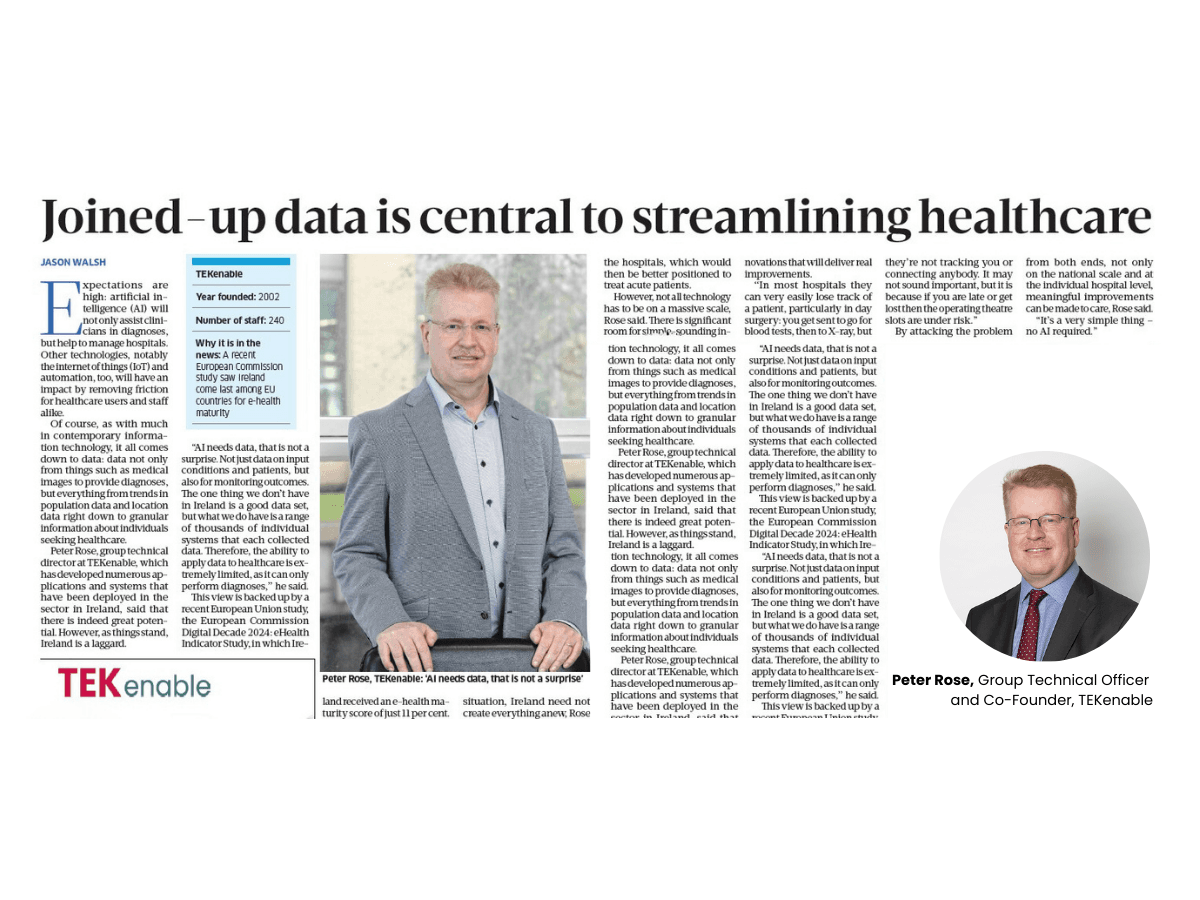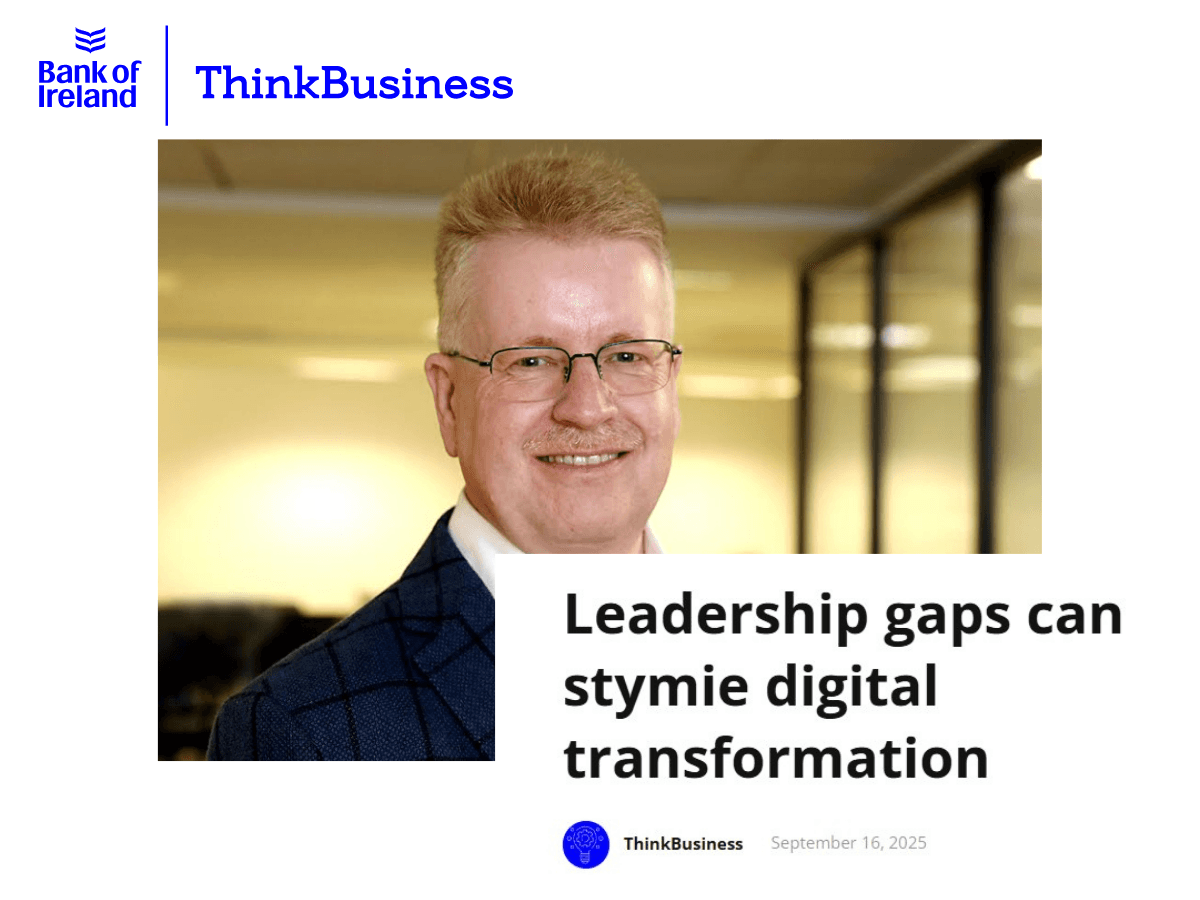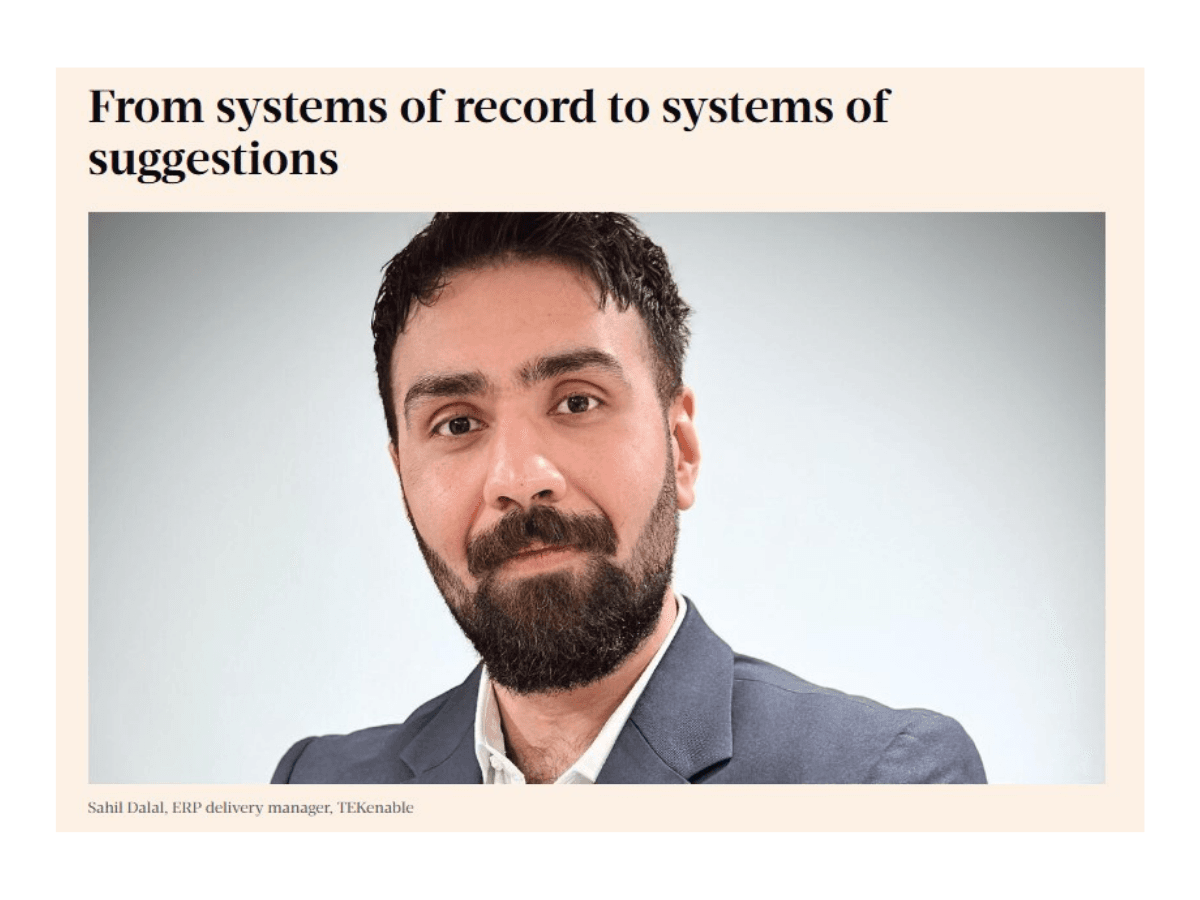Ireland struggles in e-health delivery, but the potential is there to deliver significant improvements in healthcare delivery.
Peter Rose, Group Technical Officer and Co-Founder, TEKenable
Expectations are high: artificial intelligence (AI) will not only assist clinicians in diagnoses, but help to manage hospitals. Other technologies, notably the internet of things (IoT) and automation, too, will have an impact by removing friction for healthcare users and staff alike.
Of course, as with much in contemporary information technology, it all comes down to data: data not only from things such as medical images to provide diagnoses, but everything from trends in population data and location data right down to granular information about individuals seeking healthcare.
Peter Rose, group technical director at TEKenable, which has developed numerous applications and systems that have been deployed in the sector in Ireland, said that there is indeed great potential. However, as things stand, Ireland is a laggard.
“AI needs data, that is not a surprise. Not just data on input conditions and patients, but also for monitoring outcomes. The one thing we don’t have in Ireland is a good data set, but what we do have is a range of thousands of individual systems that each collected data. Therefore, the ability to apply data to healthcare is extremely limited, as it can only perform diagnoses,” he said.
This view is backed up by a recent European Union study, the European Commission Digital Decade 2024: eHealth Indicator Study, in which Ireland received an e-health maturity score of just 11 per cent.
This is a major improvement over the country’s 2022 score of zero per cent, but compares poorly to the EU average of 79 per cent.
The report’s recommendations included the collecting of more data, and more categories of data, and making more data available to citizens.
We need the electronic health record. It should be under your control, but we do need it
“We were last in the EU by an absolute mile,” Rose said.
The end result of this is that when there is innovation it tends to be highly localised.
“Other than some very extremely interesting and innovative solutions based on AI using little, tiny islands of data from specific machines, we don’t see widespread innovation based on data,” he said.
In order to improve the situation, Ireland need not create everything anew, Rose said, pointing to the Estonian model for digital data, one that puts it well ahead of Europe’s larger countries such as France and Germany.
A major step forward would be the creation of the long-heralded electronic health record, he said.
“We need the electronic health record. It has to have all of the necessary safeguards, starting with you as the patient having the keys, so to speak. In other words, it should be under your control, but we do need it.”
Information that could be put to productive use would then include monitoring in the community and active identification of people at risk of particular conditions or diseases, ultimately leading to the freeing of capacity in the hospitals, which would then be better positioned to treat acute patients.
However, not all technology has to be on a massive scale, Rose said. There is significant room for simple-sounding innovations that will deliver real improvements.
“In most hospitals they can very easily lose track of a patient, particularly in day surgery: you get sent to go for blood tests, then to X-ray, but they’re not tracking you or connecting anybody. It may not sound important, but it is because if you are late or get lost then the operating theatre slots are under risk.”
By attacking the problem from both ends, not only on the national scale and at the individual hospital level, meaningful improvements can be made to care, Rose said.
“It’s a very simple thing – no AI required.”
The above text was reproduced from the interview published in BusinessPost on November 01st, 2024.





